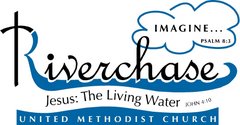By Dr. Jim H. Savage
What do we have in common with folks who lived over 2,700 years ago?
We actually have a great deal in common. We learn from writers like Amos, Hosea, Micah and others that the people in the northern kingdom were named Israel at the time. Hosea was a prophet who lived in the northern kingdom of Israel and Amos and Micah were prophets from the southern kingdom of Judah. Why was everyone mad at the king and head priest in the north? What did they have in common with us?
It seems the head priest and king had allowed other gods to be worshipped, and had even changed the worship in the main temple to include “temple prostitutes” and other little things that would cause us to raise our eyebrows today. They had changed their measuring standards for the poor so that food was too expensive for them to buy. A pound of grain was really less than a pound, and then they raised the price on this “pound” as they called it. They were cheating the poorest of the poor. I guess the ones cheating them needed more money for those temple prostitutes.
They also began to do whatever was “politically correct” regardless of what the ten commandments said, or the other commands that had been passed down to them from God. Is this starting to sound familiar?
It was an extremely prosperous time for a few folks at the top in Israel. It is even recorded that some had beds made of ivory which was unheard of in their day. The poorest folks who worked very hard in the fields could not even make enough money to feed their children so the ruling class fixed that problem. They set up a place where the poorest farm workers could sell their own into slavery which was often the big land owners and successful merchants. Amos mentioned that even this did not help the poorest people too much because some children were swapped for just one used pair of shoes. Can you imagine being so poor that you had to sell your own child?
Amos, the southern prophet of Judah was taking his life in his own hands when he headed up north to confront these sins. Amos did not see himself as a prophet and even says in his own words: “I am no prophet, nor a prophet’s son; but I am a herdsman and a dresser of sycamore trees, and the LORD took me from following the flock, and the LORD said to me, ‘Go, prophesy to my people Israel.’
Amos knew the agony of the poorest class of people. He was not part of them because he actually owned farm land, and sold his sycamore fruit to the poorest of the poor in the southern kingdom of Judah. But Amos was fair to them and tried to help them. The folks in the northern kingdom of Israel were cheating people right and left and especially those who barely had any type of food to eat. God saw this injustice and said this: “Hear this, you that trample on the needy and bring to ruin the poor of the land”…”I will turn your feasts into mourning, and all your songs into lamentation” (Amos 8:4 and 10). I could go on but you get the picture. God wants us to remember His ways, His commands, and his love for the “least of these” remembering that it was Jesus who said, “Whatever you have done to the least of these you have done it unto me” (Matthew 25:45).
Tuesday, August 14, 2007
Subscribe to:
Post Comments (Atom)


No comments:
Post a Comment